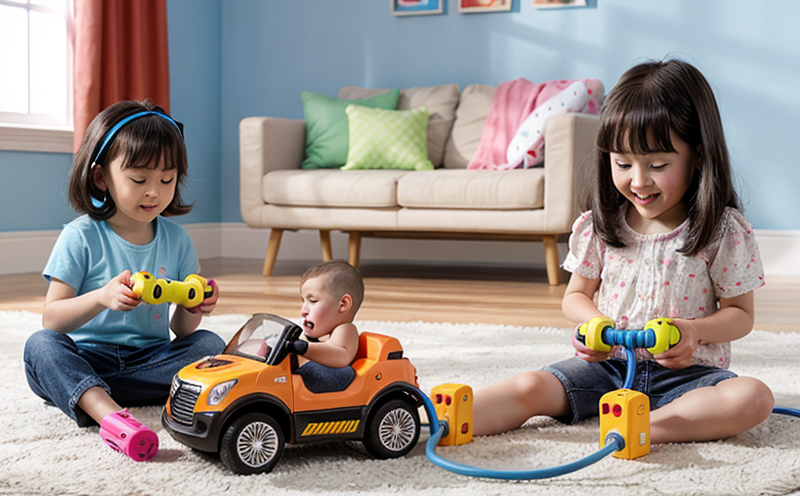IEC 62115 Battery Operated Toy Safety Test
The International Electrotechnical Commission (IEC) standard IEC 62115 is a comprehensive set of requirements designed to ensure the safety and compliance of battery-operated toys intended for children under eight years old. This standard applies not only to direct contact with batteries but also to the overall design, construction, and materials used in these toys.
The primary focus of IEC 62115 is on minimizing risks associated with electric shock, fire hazards, and mechanical injuries that could arise from improper use or malfunction. The standard covers various aspects including electrical safety, durability testing, power source integrity checks, and even packaging design considerations to prevent accidental ingestion by young children.
Compliance with this standard ensures that manufacturers meet international regulatory requirements set forth by bodies like the European Union (EU), which mandates compliance for toys imported into its member states. For companies operating globally or seeking certification in specific regions such as North America, meeting IEC 62115 can significantly streamline market entry processes.
Our laboratory specializes in providing thorough testing services according to IEC 62115, ensuring that your products not only comply with current regulations but also exceed industry expectations regarding safety standards. With our state-of-the-art facilities and experienced technical staff, we offer reliable results backed by detailed reports tailored specifically for your needs.
By partnering with us early in the product development cycle, you can identify potential issues before they become costly mistakes down the line. Our team will work closely with you to understand your unique requirements and provide recommendations based on our extensive experience in this area.
Scope and Methodology
| Test Parameters | Description |
|---|---|
| Battery Safety | Evaluates the integrity of battery compartments, ensuring they are properly sealed to prevent accidental access. |
| Electrical Strength Testing | Assesses insulation resistance and electrical continuity between conductors and exposed parts. |
| Mechanical Tests | Evaluates the durability of toy components under simulated usage conditions to assess their resistance to damage or failure. |
| Flammability Testing | Determines whether materials used in the construction of toys meet flammability requirements specified by IEC 62115. |
The methodology employed during testing adheres strictly to the guidelines outlined within IEC 62115. Each test procedure is conducted meticulously, using standardized equipment and procedures to ensure accurate results. Our laboratories are equipped with high-precision instruments capable of detecting even minute deviations from specified tolerances.
Upon completion of all required tests, a detailed report summarizing findings and recommendations for improvement (if any) will be provided promptly. These reports serve as valuable tools both for internal quality assurance purposes within your organization and for submission to regulatory authorities if necessary.
Industry Applications
In the toy manufacturing industry, compliance with IEC 62115 is essential not only for meeting legal requirements but also for building consumer trust. Parents are increasingly concerned about the safety of toys their children play with, and adherence to this standard demonstrates a commitment to producing safe products.
Manufacturers who comply with these standards often see increased sales due to improved brand reputation and enhanced customer satisfaction. Moreover, early compliance helps avoid costly recalls later on, which can damage brand image and lead to financial losses. By ensuring all aspects of your toy designs meet the stringent requirements set forth by IEC 62115, you position yourself ahead of competitors in terms of safety standards.
Our services extend beyond mere testing; we offer consultancy and training programs aimed at helping manufacturers understand how best to implement these standards into their production processes. This proactive approach ensures continuous improvement towards safer toy designs while maintaining competitiveness within the marketplace.





